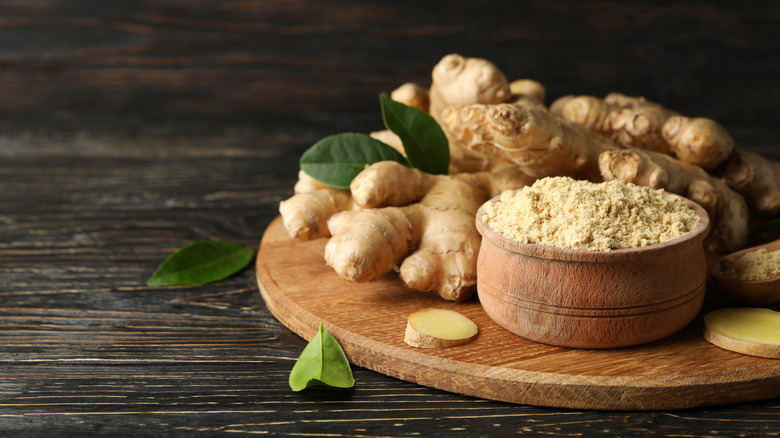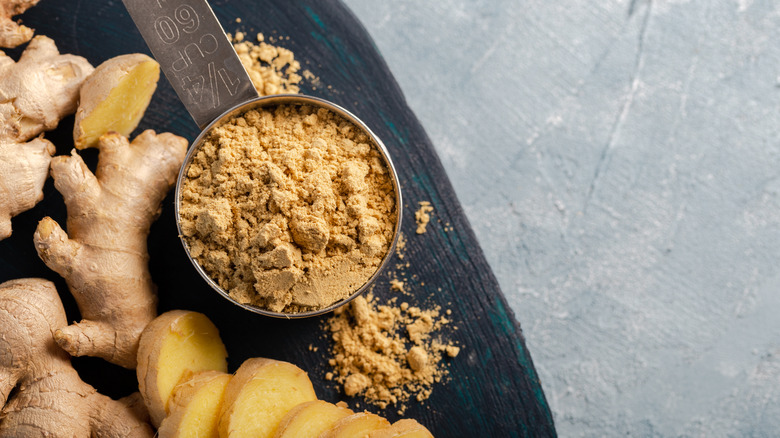What To Consider Before Substituting Fresh Ginger With Powdered
Originating in Asia, ginger has been used for thousands of years by different cultures for both medicinal and culinary purpose, including as a cure for nausea and other stomach ailments (via Medical News Today). It's also commonly used in cooking, and can be found in numerous dishes across Asian, Indian, Caribbean, and other cuisines, including in savory and sweet dishes as diverse as chicken stir fries, curries, and gingerbread cookies, among others. It's also used in drinks, from ginger ales and teas to Moscow Mules and bourbon cocktails. Given its versatility, ginger is definitely something you want to have around the kitchen.
However, there might be times where you don't have any fresh ginger on hand, or perhaps you just noticed that your ginger has gone bad. Nor can you simply run to the store and get more, or perhaps you did and the store doesn't have any in stock. You dig around in your spice cabinet and luckily find a jar of powdered ginger. Before you start celebrating and replacing the fresh ginger in your recipe with powdered ginger, there are a few things you need to consider.
When and how to swap fresh ginger with powdered
Powdered, or ground, ginger is simply dried ginger that's been ground to a fine powder. Powdered ginger is more concentrated than fresh ginger, so you'll want to use less of it when swapping out for fresh ginger. According to McCormick, ¼ teaspoon of ground ginger is equivalent to 1 teaspoon of grated fresh ginger. However, MasterClass recommends starting with just ⅛ teaspoon of ground ginger per teaspoon of fresh ginger and working your way up based on taste, noting that powdered ginger is spicier and more pungent than fresh, due to a higher concentration of shogaol. Of course, that ratio can be affected by how old and flavorful your powdered ginger is — per Martha Stewart, if your powdered ginger doesn't smell "warm and peppery," then it's time to toss it as it won't add the flavors you're looking for.
It's also important to note that the substitution doesn't always work the other way around either. In other words, you can't always replace powdered ginger with fresh ginger. As The Spruce Eats explains, this is particularly true for baked goods, where you shouldn't use fresh ginger, and instead, are better off using another ground or powdered spice, such as allspice, cardamom, cinnamon, mace, nutmeg, or pumpkin pie spice.

